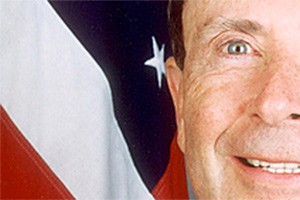US unwisely ignores sub-Saharan Africa - Former US Ambassador John Price
African leaders are skeptical about President Obama's engagement of sub-Saharan Africa, in part, because he has been there only once since becoming president, visiting Ghana in 2009 for less than 24 hours.
What's more, when Mali's government called out for help to subdue Islamist extremists who had overrun the northern part of the country, the Obama administration demurred.
Mistrust and resentment exist in sub-Saharan Africa, and present a challenge for the administration as Mr. Obama plans to visit Senegal, South Africa and Tanzania from June 26 to July 3.
“The president will reinforce the importance that the United States places on our deep and growing ties with countries in sub-Saharan Africa, including through expanding economic growth, investment, and trade; strengthening democratic institutions; and investing in the next generation of African leaders,” according to a White House statement this month. “The trip will underscore the president’s commitment to broadening and deepening cooperation between the United States and the people of sub-Saharan Africa to advance regional and global peace and prosperity.”
Last week, Secretary of State John F. Kerry traveled to Addis Ababa, Ethiopia to attend the 50th anniversary celebration of the African Union. In his remarks Saturday, Mr. Kerry focused on building democracy and protecting human rights.
“As everybody knows, we believe very deeply that where people can exercise their rights, and where there is an ability to have a strong democracy, the economy is stronger, the relationship with the government is stronger, people do better, and it’s an opportunity to be able to grow faster, stronger, by rule of law,” he said.
Mr. Kerry also acknowledged that the United States is far behind in investing and taking advantage of the economic opportunities in Africa. The U.S. has shown only a limited interest in sub-Saharan Africa, with most of its attention focusing on the petroleum and minerals sectors.
Africa has 15 percent of the world’s population, but makes up less than 3 percent of the world’s GDP. Five of the 49 sub-Saharan countries account for 44 percent of Africa’s GDP. Even though South Africa and Nigeria make up nearly 34 percent of the continent’s economy, most of their citizens live at or below the poverty line.
I believe the Obama administration has a myopic view of this faraway continent and a limited understanding of its importance to our national security. There needs to be a better understanding of the multicultural and ethnic diversity that exists in the thousands of villages, and the growing influence of radical Islam in sub-Saharan Africa.
U.S. engagement needs to focus on more sustainable economic development, poverty eradication, education and improved health care in the African villages. Only then can democracy take root.
U.S. foreign policy in sub-Saharan Africa also needs to be consistent. Our “wait-and-see” attitude does not sit well with governments already suspicious of our agenda. We constantly ask these African countries to support us at the U.N., yet at times we resort to veiled threats of cutting aid to get our way, and many of our promises go unfulfilled.
When I was a U.S. ambassador and during my subsequent visits to Africa, leaders told me the U.S. is considered a “fair weather friend” because of its inconsistent foreign policy. With our “democracy first” conditions for engaging with African governments, we risk being trumped by China and other countries actively pursuing opportunities in the sub-Saharan area.
China has been active in sub-Saharan Africa for more than 50 years, and uses diplomatic and financial influence to gain support. China has worked diligently to make friends and gain advantages to lock up the natural resources in many countries.
U.S. assistance needs to be aimed at building trust and friendships to help African countries extract themselves from abject poverty.
We need to improve our diplomatic relations and establish stronger economic ties. We need to understand that our form of democracy may not take hold everywhere, so we must listen to what these countries want to achieve and work with them, rather than exclude them from our assistance for not complying with our standards.
The U.S. needs to support trade and open markets for economic expansion — the building blocks for growth, prosperity and security.
Mr. Obama needs to move forward on promises made regarding sub-Saharan Africa — “expanding economic growth, investment, and trade; strengthening democratic institutions; and investing in the next generation of African leaders.”
John Price is a former U.S. ambassador to Comoros, Mauritius and the Seychelles islands. He currently serves as a resident scholar at the University of Utah’s Hinckley Institute of Politics. He is the author of “When the White House Calls,” and regularly writes commentaries on Africa and the Arabian Peninsula.


